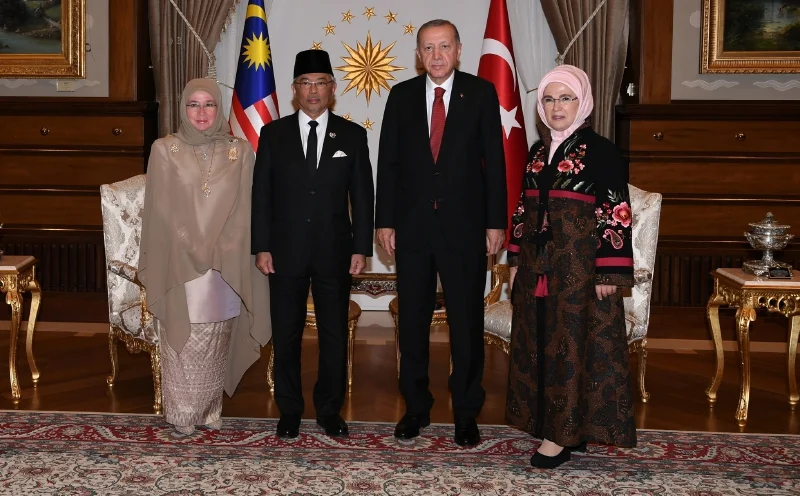US President Joe Biden announced the withdrawal of US troops from Afghanistan by September 11, 2021, to commemorate the 20th anniversary of al-Qaeda’s attacks on Washington and New York. The U.S. military had been occupying Afghanistan since October 2001 when the former administration of President George Bush Jr. sent troops to occupy Afghanistan to fight al-Qaeda. The conflict in Afghanistan has claimed many lives. In addition, the estimated cost of US involvement in the conflict in Afghanistan is 2 trillion US dollars. The US government stated that they have no choice but to withdraw from Afghanistan because the conflict in Afghanistan had become a ‘fiasco’ or failure. It is not an exaggeration to equate the involvement of the US military in the conflict in Afghanistan as a ‘second Vietnam’ for the US.
The withdrawal of U.S. troops from Afghanistan will have a serious impact on the security and stability of China and the Central Asian region because it will cause uncertainty and a power vacuum in Afghanistan. The question that often arises when discussing the withdrawal of U.S. troops is to what extent the Afghan government led by President Ashraf Ghani can survive without the presence of U.S. troops. Afghan history has proven that after the withdrawal of Soviet Union (USSR) troops in 1989, the government of President Mohammad Najibullah was overthrown by the Taliban in 1992. Afghanistan is likely to face a civil war similar to what had happened in the early 1990s.
The possibility of a civil war will challenge China’s economic interests in Afghanistan and Central Asia and may even threaten the security of China’s north-western border, especially in the Xinjiang province which faces terrorism and extremism. Ironically though, China has often criticized the presence of U.S. and NATO troops in Afghanistan for being close to Xinjiang in north-western China. But the fact is that the presence of U.S. and NATO troops also contributes to China’s interests and security as it has managed to reduce the influence of the Taliban that challenges Chinese rule in Xinjiang.
China is aware that the Taliban’s political influence in Afghanistan cannot be ignored and the Chinese government has even sought to establish relations with Taliban leaders. But China is also concerned that the Taliban will support groups fighting for Xinjiang’s liberation from China, such as the East Turkestan Islamic Movement (ETIM). It is a worry for Beijing that the withdrawal of U.S. troops will cause Afghanistan to be a refuge for ETIM as it recruits members. This will certainly threaten China’s security and peace as China and Afghanistan share a 90 km long border on the Wakhan Corridor. ETIM members can come in and out easily.
China has always been critical of the deployment of US and NATO troops in Afghanistan. However, now that the US and NATO forces will be leaving, ironically China is concerned that extremism in Afghanistan will spread to affect the province of Xinjiang. The notion that upon the withdrawal of U.S. troops will see China play a more active role in Afghanistan is inaccurate because the security situation in Afghanistan is still unstable. These concerns also impact the Central Asian region because most Central Asian countries uphold secularism in administration, although the majority of their population is Muslim. The Taliban’s growing influence after the US military withdrawal will be a catalyst for groups such as the Islamic Movement of Uzbekistan (IMU), and Hizb ut-Tahrir to intensify their struggle to overthrow the secular regimes in Central Asia.
The Shanghai Cooperation Organization (SCO) which consists of eight member countries namely Russia, Kazakhstan, Kyrgyzstan, Tajikistan, Uzbekistan, Pakistan, India, and China needs to strengthen the security cooperation and work with the Afghan government to ensure the safety of the Afghanistan. For now, China has no plans to deploy its troops in Afghanistan as it does not wish to repeat the mistakes made in the past by great powers such as the British, USSR, and the US that sent troops to Afghanistan which is nicknamed ‘the graveyard of empire’. Beijing adopted a ‘wait and see’ approach after the withdrawal of US troops.
As a result, China is working to ensure that Afghanistan’s politics and security are stable so that economic interests, especially the BRI plan and the New Silk Road, are guaranteed. China is aware that the security and stability of Central Asia, especially the Xinjiang Uyghur Autonomous Region (XUAR), is heavily influenced by security conditions in Afghanistan. China employs the ‘checkbook diplomacy’ strategy by offering development assistance. The development assistance aims to improve the living standards of the Afghan people as well as obtain stable employment so that they do not engage in terrorist activities, and then, peace can be restored.
Moreover, China does not wish for Taliban to join the international community in criticizing it for its treatment of the Uyghur minority population. China has already received strong criticism, especially from some Western countries against its actions of sending the Uyghur community to camps for rehabilitation and re-education purposes. China does not want the Taliban to condemn its actions in Xinjiang because it is aware that Taliban’s criticism towards the re-education camps may cause a chain reaction and trigger condemnation from the Islamic world.


